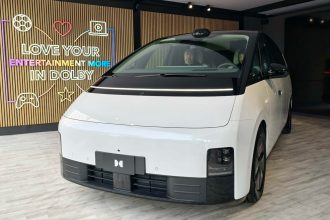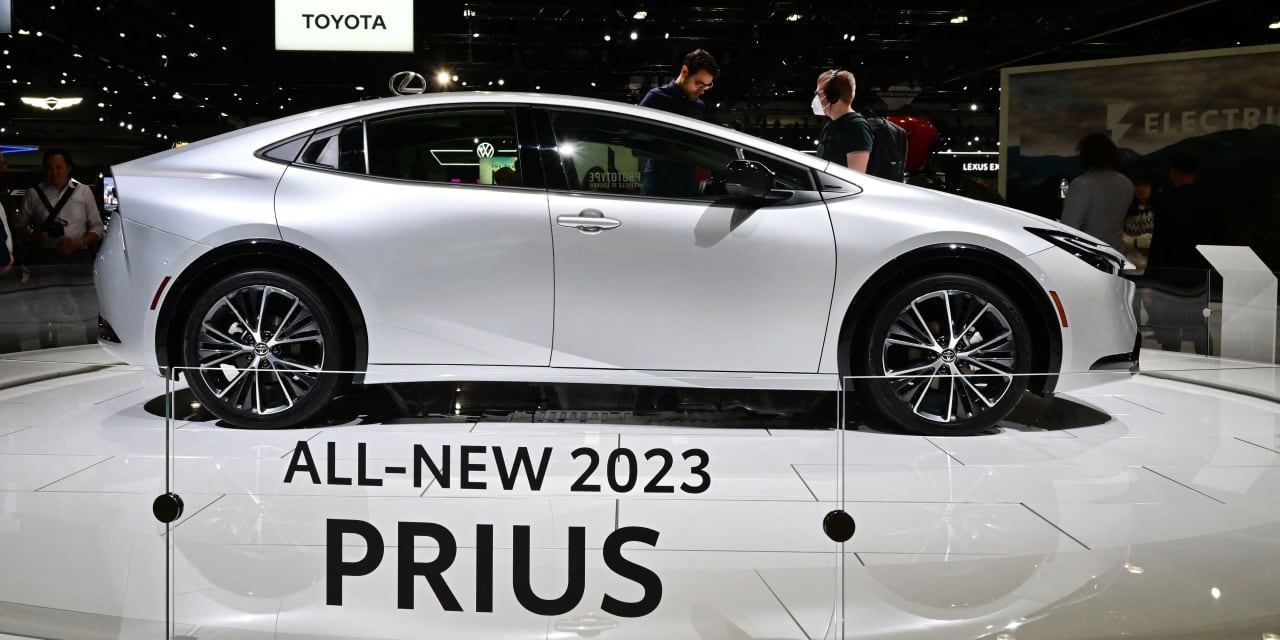The 2024 Toyota Prius just won a car-of-the-year award, but that may say more about the state of EV adoption than about the Prius, a hybrid that has been around for more than two decades in numerous iterations.
Legacy automobile makers such as Ford Motor Co.
F,
and General Motors Co.
GM,
have slowed down their EV expansion, and EV native Tesla Inc.
TSLA,
has sounded cautious. A recent survey found fewer U.S. residents open to buying an EV this year than two years ago.
Hybrids have emerged as a bridge between the desire to eschew a gas-powered vehicle and high EV prices. Their continued popularity underscores the difficulty of making a profitable EV at a relatively affordable price. And concerns about interest rates and uncertainty about the economy have underscored that mismatch.
See also: Ford is going all-in on hybrids. Here’s why.
“I’ve seen a couple of what I like to call structural issues with the EV movement, the primary one being cost,” and now you add the economic concerns, said Karl Brauer, an analyst at iSeeCars.com. “They are not good business.”
Tesla made money initially through a reliance on credits, and even so it took the company two decades of losing money to finally turn a profit, Brauer said. And Tesla, despite its EV pole position, has resorted to several price cuts to boost demand and is seeing margins contract, he said.
“Do EVs have a role to play? Absolutely. The problem is the assumption that they have ‘the’ role to play,” Brauer said.
Hybrids might be here for longer, as technological breakthroughs such as solid-state batteries might still be years away. Better infrastructure to support charging, so that drivers know they can reach their intended destinations before a charge is depleted, may be another hiccup despite government intervention.
From the archives (April 2023): Biden adds more EV charging with pledges from Uber, Walmart, PG&E and others
“While EV demand is still strong both in the U.S. and Western Europe, the perception that the slowdown is real exists, particularly in the U.S.,” Tom Narayan of RBC Capital Markets said in a deep-dive note about the EV market.
According to a survey earlier this month by S&P Global, 52% of U.S. car shoppers reported being “open to buying an EV” this year, down from 81% in 2021.
“High vehicle prices are the biggest barrier to purchasing an EV or a hybrid vehicle, even though combustion vehicle prices have risen as well, owing to inflation and the rising cost of raw materials,” S&P said.
Much of the recent perception of EV troubles stems from comments by car-industry executives on analyst calls after third-quarter results.
Tesla was first, as the first major U.S. manufacturer to report third-quarter earnings in mid-October. Ford and GM followed shortly after.
On Tesla’s call, Elon Musk, the company’s chief executive, sought to temper expectations about the Cybertruck, saying that it would be hard to get to volume production — and profit.
Related: Tesla’s Cybertruck contract restricts reselling vehicle within the first year
Adding to investor concerns, Musk’s comments on the call included far-reaching criticism of interest rates and concerns about the global economy and the overall health of the car industry. “I don’t want to be at top speed into uncertainty,” Musk said.
RBC Capital’s Narayan said he believes the broader thesis for EVs hasn’t changed.
“While near term we could very well be experiencing an EV slowdown in the U.S. and Western Europe, the medium- and long-term EV thesis is still very much intact,” he said. “We expect EV pricing to come down and increasing model availability should help alleviate demand concerns.”
Moreover, “we believe U.S. and European public charging infrastructure adjusted for housing dynamics is actually better than some fear,” the analyst said. Charger supply is leading demand, not lagging, he said.
As for the Prius, MotorTrend Group, a unit of Warner Bros. Discovery Inc.
WBD,
leaned on the vehicle’s “astounding transformation” in its newest iteration to bestow on it the title of car of the year, awarded every year since 1949.
The Prius “handily beat a field of heavyweight contenders,” including the Tesla Model 3 Highland and Lucid Group Inc.’s
LCID,
Lucid Air, MotorTrend said.
Still, it pointed to prices and charging issues as reasons the car could become more popular: “As a hybrid model, the Prius is well-positioned amid slumping EV sales growth and consumer charging anxiety.”
Read the full article here





